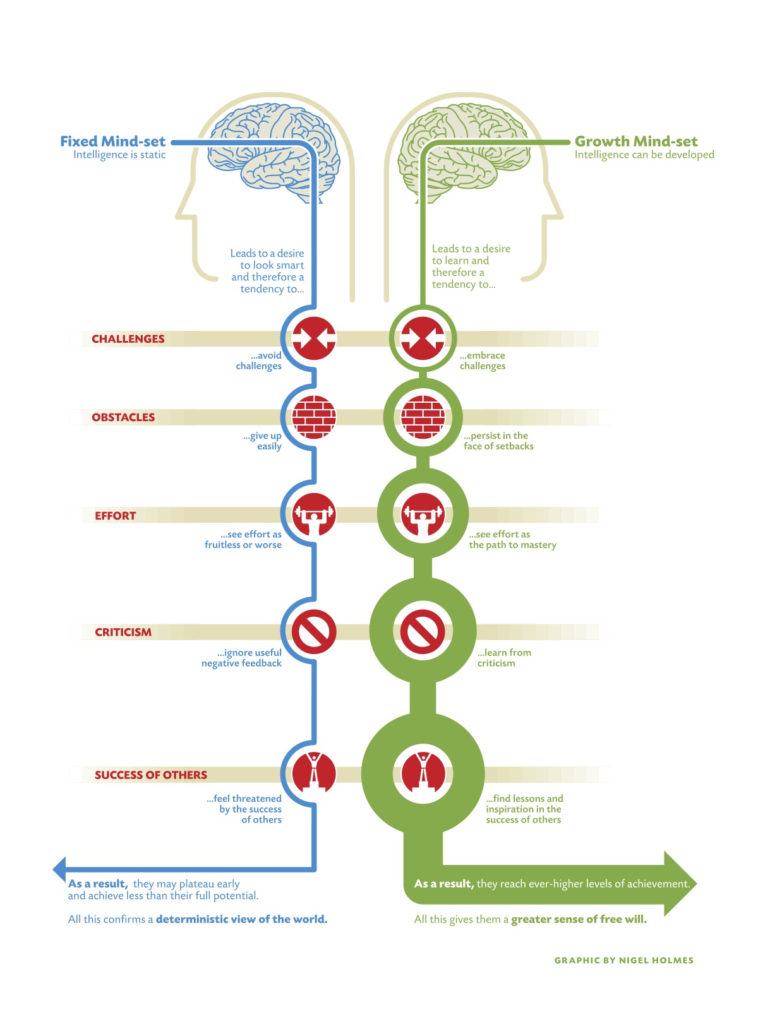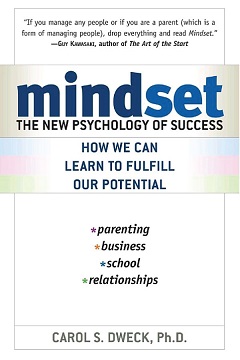November 29, 2017 Book Reviews
Just recently, using a recommendation, I read the book “Mindset: The New Psychology of Success”. In the book, Carol S. Dweck argues that people can be divided into two groups. Those who have fixed mindset and those who have growth mindset. This is how she explains it:
Believing that your qualities are carved in stone — the fixed mindset — creates an urgency to prove yourself over and over. If you have only a certain amount of intelligence, a certain personality, and a certain moral character, well then you’d better prove that you have a healthy dose of them. It simply wouldn’t do to look or feel deficient in these most basic characteristics.
A growth mindset comes from the belief that your basic qualities are things you can cultivate through effort. Yes, people differ greatly – in aptitude, talents, interests, or temperaments – but everyone can change and grow through application and experience.
Qualities of successful people and the growth mindset
Apparently the whole book argues that people with the growth mindset usually have better odds of becoming successful. Professor Dweck demonstrates this through the research she has done. Her team showed that the view people adopt of themselves has profound impact on their lives. This resonates with a famous quote by Henry Ford “Whether you think you can, or you think you can’t – you’re right”.
When I think of myself I cannot tell if I’m more of a growth mindset or of a fixed mindset. I am afraid to fail, but at the same time I am fine with trying things I could fail in. I like to prove myself, but at the same time I am open to learning and can easily admit if I don’t know something. Top grades in high school was my thing, but this didn’t stop me from taking part in math, physics, chemistry, programming competitions even I knew that at some level I will be stopped revealing that I am not that “all knowing”.
From my own observation, many successful people whom I met in life usually had an urge to prove themselves, which is explained in the book as a quality of a fixed mindset person. These people were so much afraid to fail that they put tons of effort into things they were doing. This might be one bit where I somewhat disagree with the author. Even more, it was somewhat ironical to read about desire to prove yourself as a fixed quality from a successful person who admits of being taught of fixed mindset in her childhood.
Of course, it is totally different issue when people try to prove themselves by pretending to be smarter, cooler, or whatever. I consider this to be a very bad behavior and in general a red flag for any relationship, including employer-employee.
Learning like children
In my opinion, the chapter on parenting is where the book really excels. The advice I took for myself is not to praise my children for how smart they are, but instead praise them for their effort. I strongly agree that it is important to develop children’s desire to learn things, to encourage their curiosity, and to work on their resilience to failure. It has been for couple of weeks as I try to use this advise with my daughter and it really works. My toddler daughter now seeks to put more effort into little things she does.
We all should be more like little children when it comes to learning and trying new things. A baby doesn’t question its ability to learn how to walk. Small failure is nothing more than a learning experience. While I was writing this blog post I also stumbled upon another idea that when we are young we are full of curiosity and intrinsic motivation but overtime it is replaced by extrinsic motivation in form of grades, ratings, incentive pay, etc. I think this idea by Edwards Deming plays very well with the ideas in the “Mindset” book, especially considering that Carol S. Dweck has done a lot of her research on students and children.
I want to leave you with this great illustration of the two mindsets.
2 comments
| Markdown | Result |
|---|---|
| *text* | text |
| **text** | text |
| ***text*** | text |
| `code` | code |
| ~~~ more code ~~~~ |
more code |
| [Link](https://www.example.com) | Link |
| * Listitem |
|
| > Quote | Quote |


Thank you for sharing your minds regarding this book and such philosophy at all. Anyway, not sure that it is a correct way to divide all personalities into the 2 groups, at least if it true, then most of us like somewhere in the middle ;)
Ihor, you are right. I believe the author decided to divide people into two distinct groups as it was easier to explain the ideas behind the book. But, yes, I agree that most of us are somewhere in between.